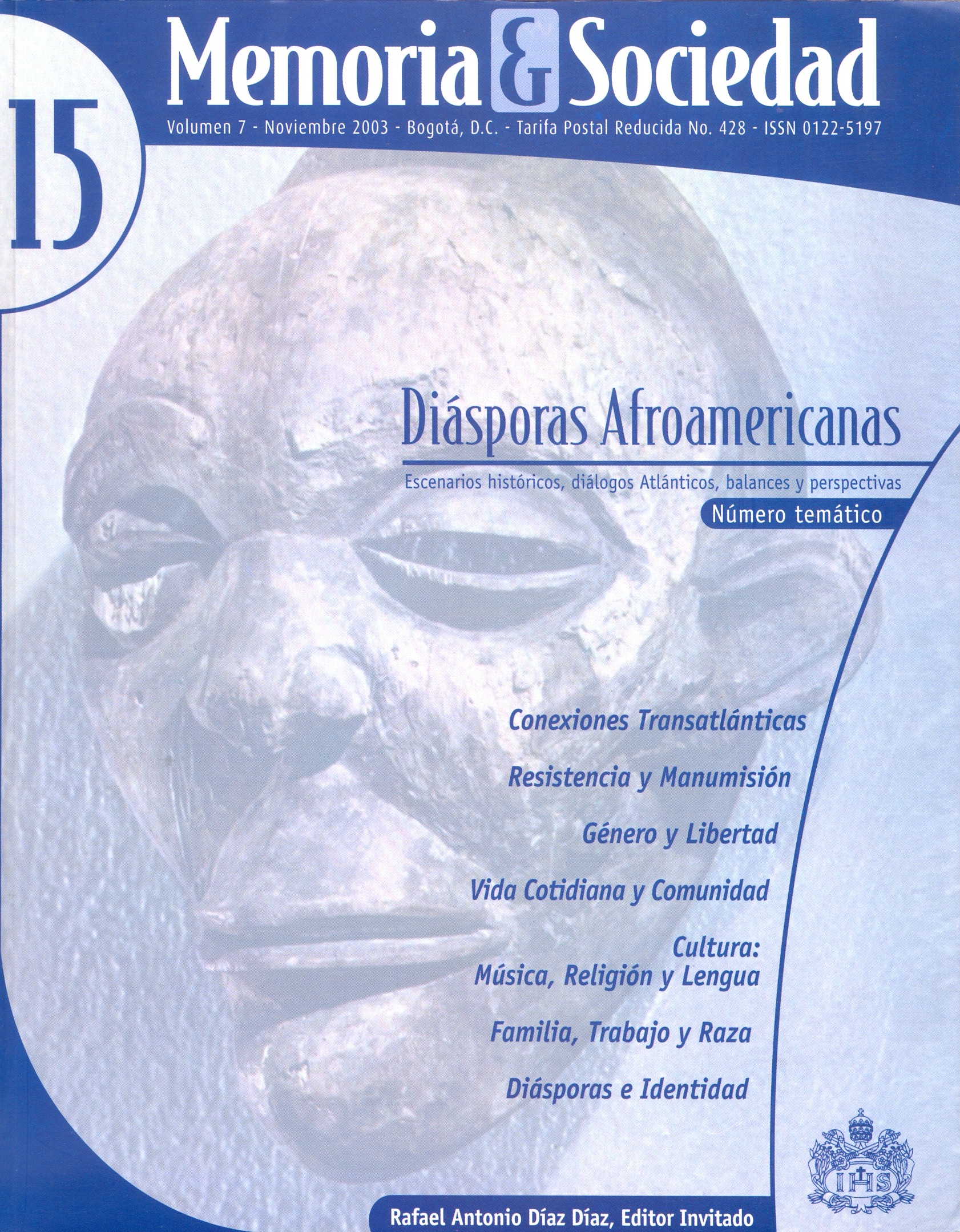Abstract
The conceptions of the practices and values related to Education and Work in black families in Brazil and in African migrant families in Portugal constitute the subject of a debate about African Diaspora, represented, in its origin, by slavery in Brazil and also by the contemporary migration process towards Europe, particularly the one which results from migration of the African Countries of Portuguese Official Language (PALOP) to Portugal. Thus, it's under question the dimension of old and new processes according to which the identities and the social practices in the ethnic field and in the collective action are "re-contextualized" and made particular. The condition of the "trans-located “people involves new rights to the roots, memory, identify and, above all, to the citizenship.The journal Memoria y Sociedad is registered under a Creative Commons Attribution 4.0 International Public License. Thus, this work may be reproduced, distributed, and publicly shared in digital format, as long as the names of the authors and Pontificia Universidad Javeriana are acknowledged. Others are allowed to quote, adapt, transform, auto-archive, republish, and create based on this material, for any purpose (even commercial ones), provided the authorship is duly acknowledged, a link to the original work is provided, and it is specified if changes have been made. Pontificia Universidad Javeriana does not hold the rights of published works and the authors are solely responsible for the contents of their works; they keep the moral, intellectual, privacy, and publicity rights.
Approving the intervention of the work (review, copy-editing, translation, layout) and the following outreach, are granted through an use license and not through an assignment of rights. This means the journal and Pontificia Universidad Javeriana cannot be held responsible for any ethical malpractice by the authors. As a consequence of the protection granted by the use license, the journal is not required to publish recantations or modify information already published, unless the errata stems from the editorial management process. Publishing contents in this journal does not generate royalties for contributors.

